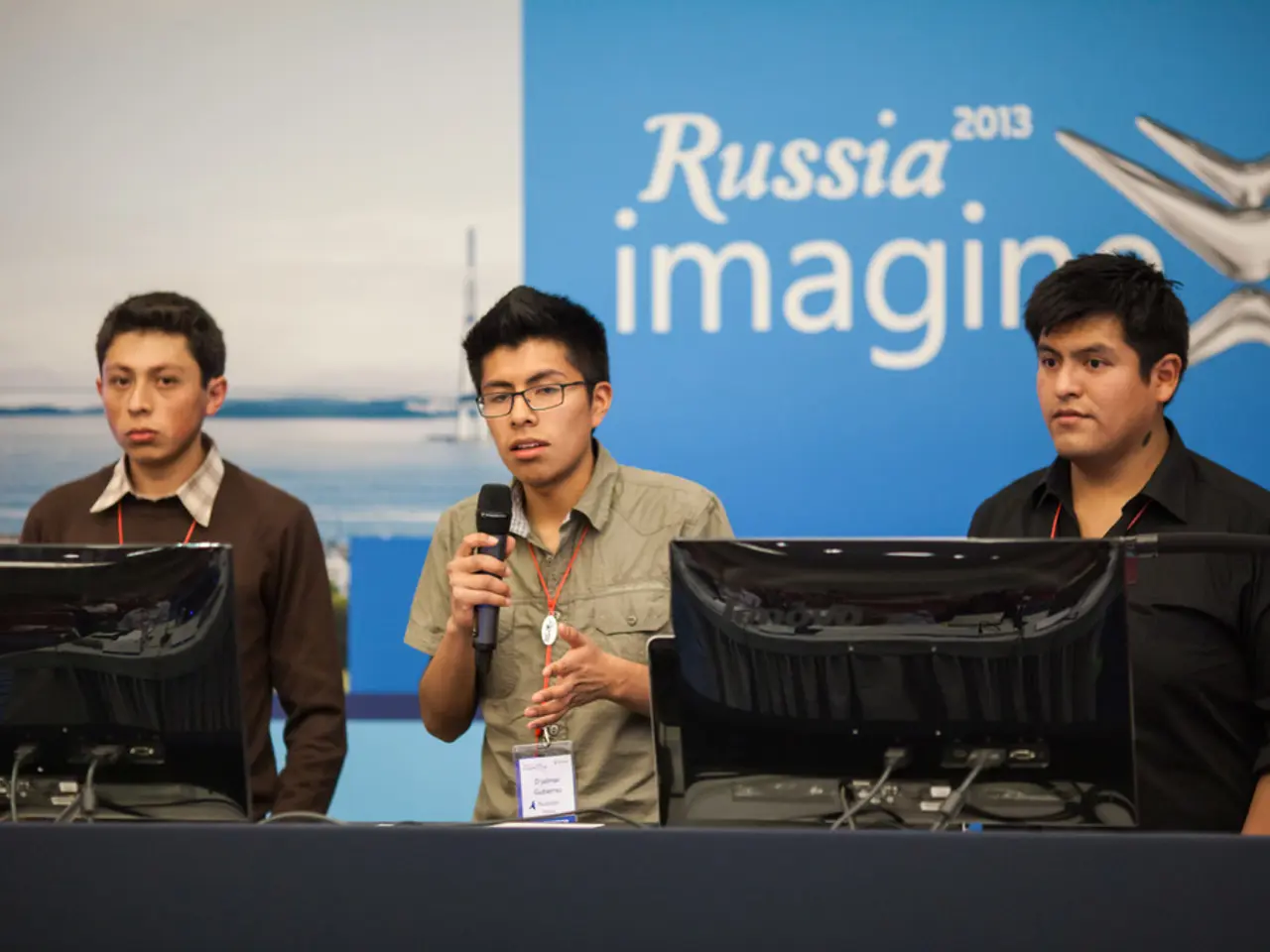Discussion between the Russian representative indicated a satisfying progress in negotiations.
In Anchorage, Alaska, the much-anticipated meeting between US President Donald Trump and Russian President Vladimir Putin took place on Tuesday. The joint press conference that followed was described as constructive by both leaders, yet fell short of a formal ceasefire agreement on Ukraine.
Before the meeting, Germans had low expectations, and hundreds of people gathered in Anchorage to protest the planned summit. Ines Schwerdtner, the chairwoman of the Left Party, criticized the format of the negotiations, expressing her skepticism about the Alaska summit.
The press conference, which lasted about nine minutes, began with Putin highlighting a generally good working relationship with Trump. Trump mentioned plans to contact European leaders and Ukrainian President Volodymyr Zelenskyy to follow up on the discussions. Neither leader took questions from the press, and the planned joint luncheon was skipped. Putin invited Trump for a follow-up meeting in Moscow the next year.
Trump called the meeting "very productive" but was cautious, stating "there's no deal until there's a deal." He acknowledged that while many points were agreed upon, some key issues remained unresolved. Putin expressed confidence that progress toward peace in Ukraine could be made, suggesting that if Trump had been president in 2022, the war might have been avoided.
The meeting was not without controversy. An overnight drone attack by Ukraine is reported to have hit a Russian oil refinery in the city of Sysran. The Ukrainian military claimed to have attacked a ship carrying drone parts and ammunition from Iran in the port of Olya in the Russian region of Astrakhan.
Julia Navalnaya, the widow of the late Russian opposition figure Alexei Navalny, urged Trump and Putin to make the summit historic in at least one aspect, suggesting a potential prisoner exchange. Maximilian Terhalle, a security expert at the Hoover Institution of Stanford University, warned that Putin was trying to remove Ukraine from the agenda during the summit.
The planned one-on-one meeting between Trump and Putin will now also involve advisors from both sides. Trump proposed a potential second Ukraine summit could take place in Alaska. Skepticism about a successful summit from Ukraine's perspective is high in Europe, with nearly 60% of respondents saying they are not very or not at all confident that Trump would make a wise decision in the war.
Despite the ongoing tensions, Trump praised Belarusian long-time ruler Lukashenko and hinted at a meeting. The meeting between Trump and Putin will include a joint press conference, as announced by the White House and the Kremlin. The details of the press conference are still uncertain.
The summit comes amidst reports of losses in the Russian air regiment stationed on the annexed Crimea, with more than half of its Su-30SM combat jets lost since the spring of 2022. The Russian-occupied Ukrainian city of Donetsk saw one woman killed and three others injured by Ukrainian shelling. An explosion occurred at a gunpowder production facility in the Russian city of Rяazan, with reports suggesting 3-5 deaths and at least 20 injuries.
The USAID did not monitor the use of 5,175 Starlink terminals delivered to Ukraine. More than half of the active devices are located in areas fully or partially occupied by Russia. President Volodymyr Zelensky stated that Ukraine has received $1.5 billion from European allies for the purchase of US weapons.
As the meeting wraps up, the negotiations on Ukraine's future remain ongoing. The summit has been a significant step in the geopolitical landscape, but whether it will lead to a lasting peace remains to be seen.
- The tensions between the US and Russia, as well as the war-and-conflicts in Ukraine, are not isolated incidents, but rather parts of a larger general-news narrative that intertwine with politics.
- The community policy regarding international affairs, such as the current summit between US President Donald Trump and Russian President Vladimir Putin, has significant implications for employment policies, particularly in terms of diplomacy and foreign relations.








